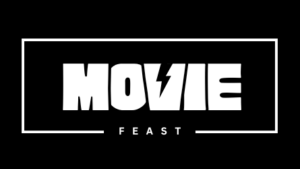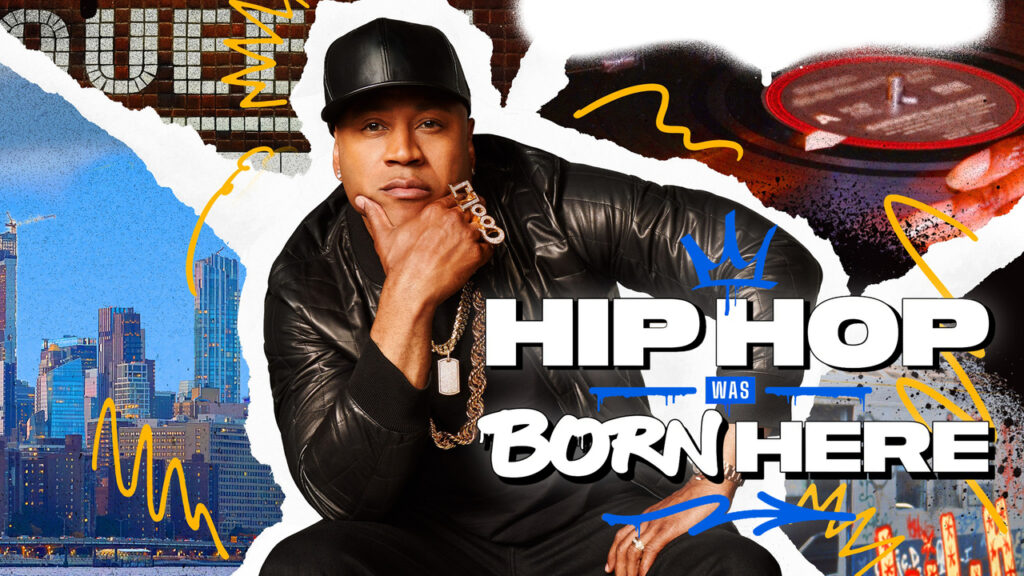The Hip Hop Was Born Here review reveals why this 2025 Paramount+ docuseries delivers authentic cultural storytelling and emotional resonance. LL Cool J’s passionate hosting transforms familiar documentary territory into something genuinely powerful and historically significant.
What happens when you combine the raw energy of hip hop’s origins with the most authentic voices from the culture’s founding era? You get documentary perfection. Hip Hop Was Born Here (2025), hosted and executive produced by LL Cool J, stands as one of the most compelling music documentaries in recent streaming history. This intense five-part series follows the birth and evolution of hip hop culture in New York City through the voices of the pioneers who lived it. While the series operates on familiar music documentary territory, it succeeds because it never exploits its premise—every moment of cultural exploration and personal testimony is handled with complete emotional authenticity.
Synopsis
Hip Hop Was Born Here takes viewers on a comprehensive journey through the origins and evolution of hip hop culture in New York City, from its birth in the Bronx to its global cultural dominance. Hosted by legendary rapper LL Cool J, the series features intimate interviews with hip hop pioneers including Big Daddy Kane, Doug E. Fresh, Method Man, Rev Run, and Remy Ma, among others. Each episode explores different aspects of the culture’s development through the eyes of those who created it.
The series examines how hip hop emerged from the streets of New York as more than just music—it became a complete cultural movement encompassing rap, DJing, breakdancing, and graffiti art. Through personal stories and rare archival footage, the documentary follows the transformation of a local phenomenon into a global force that would reshape music, fashion, and social consciousness forever.
Plot & Themes
Hip Hop Was Born Here operates on a powerfully complex premise: sometimes the most profound cultural movements emerge from the most challenging circumstances. The New York City setting serves as both historical backdrop and metaphor for exploring deeper questions about creativity, community, and the courage to express truth through art when everything feels impossible.
The series’ genius lies in its careful balance between historical documentation and personal storytelling. When the pioneers share their experiences of creating something unprecedented while facing social and economic obstacles, the show never treats their struggles as secondary to the music. These moments work because LL Cool J understands that true cultural impact comes from emotional investment in the people behind the movement.
Thematically, the series explores how artistic expression can transform communities and how authentic voices can challenge established systems. The artists’ journey isn’t just about creating music—it’s about discovering that culture and creativity can triumph over adversity and marginalization.
Cinematography & Visuals
The cinematography captures the gritty authenticity of hip hop’s urban origins with visual techniques that serve both the documentary and emotional elements perfectly. The visual style emphasizes the contrast between the harsh realities of 1970s New York and the vibrant creativity that emerged from those conditions, using archival footage and contemporary interviews to create compelling historical narrative.
The series excels in building cultural understanding through environmental storytelling. The sequences showing iconic locations like the Bronx, Harlem, and Brooklyn demonstrate excellent use of historical and contemporary footage. The camera work holds on meaningful moments of reflection and celebration just long enough to create genuine emotional investment.
Cultural details reward careful viewing. During performance sequences, attentive viewers will notice how the artists’ passion for their craft parallels the growth of hip hop from local parties to global phenomenon, creating visual connections between past and present.
Interviews & Personalities
LL Cool J delivers a compelling performance as host, anchoring the series with his deep knowledge and genuine passion for hip hop culture. His role as both interviewer and cultural participant feels authentic and earned rather than forced. Cool J brings both reverence and critical insight to his conversations with fellow pioneers.
Big Daddy Kane provides excellent historical perspective, bringing depth and authenticity to his segments about rap’s lyrical evolution. His chemistry with other interviewees creates believable connections that demonstrate hip hop’s collaborative spirit.
Method Man rounds out the featured artists with performances that balance street credibility with mainstream success. His scenes discussing hip hop’s commercial evolution demonstrate genuine insight while maintaining cultural authenticity.
The supporting cast of pioneers, including Doug E. Fresh, Rev Run, and Remy Ma, brings diverse perspectives without falling into repetitive storytelling, creating a comprehensive view of hip hop’s multifaceted development.
Direction & Production
The series’ direction maintains perfect pacing throughout its five-episode runtime. Coming from their experience with cultural documentaries, the production team understood that music series require careful balance between historical context and personal storytelling. Every interview and performance segment is given space to resonate emotionally and culturally.
The production layers content at multiple levels:
- Historical development that explores hip hop’s evolution authentically
- Personal stories that feel genuine rather than manufactured
- Cultural analysis that builds naturally from the interviews
- Musical elements that never feel exploitative or superficial
The series’ structure follows documentary conventions while subverting them through genuine cultural celebration. This creates familiarity that makes the unexpected moments of insight and emotion land with greater impact.
Sound & Music
The series’ audio design perfectly balances classic hip hop tracks with contemporary production to create a sonic landscape that mirrors the culture’s evolution. The music enhances rather than overwhelms the natural power of the interviews and historical footage.
Sound design plays a crucial role in building cultural immersion. The way classic beats transition into contemporary production, and how the artists’ voices are layered with their music, creates an experience that places viewers directly into hip hop’s development timeline.
The use of silence and space deserves particular recognition. Key moments of reflection and cultural analysis are allowed to breathe without musical manipulation, trusting audiences to connect with the historical significance through the artists’ authentic voices alone.
Conclusion & Verdict
Hip Hop Was Born Here succeeds because it treats its cultural premise with intelligence and respect for both the pioneers and the audience’s capacity for understanding complex cultural history. Every element—from interviews to archival footage to musical selections—works in service of both education and celebration without sacrificing either.
Strengths:
- Exceptional host performance that creates believable cultural authority and passion
- Authentic pioneer interviews that feel researched and respectful
- Excellent pacing that builds understanding while maintaining cultural focus
- Thoughtful exploration of hip hop’s social impact through personal stories rather than academic analysis
Minor Weaknesses:
- Some historical elements feel slightly rushed given the vast scope of the subject
- Occasional pacing issues when transitioning between different cultural aspects
This series remains essential viewing for music fans and anyone who appreciates authentic cultural storytelling. Hip Hop Was Born Here works for audiences who enjoyed The Get Down, Hip-Hop Evolution, or Summer of Soul.
Rating: 9.0/10
Host/Executive Producer: LL Cool J
Co-Creator/Executive Producer: Peyton Manning
TV Rating: TV-14 (for language and mature themes)
Featuring: LL Cool J, Big Daddy Kane, Method Man, Doug E. Fresh, Rev Run, Remy Ma
For more music documentaries, check out our analysis of other Paramount+ original series. You can also explore the series’ cultural impact at the Internet Movie Database.


